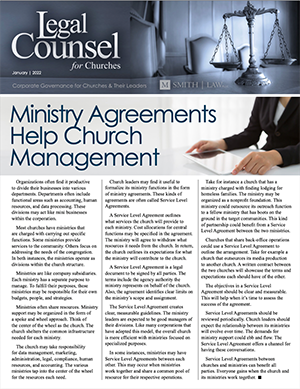Churches are vulnerable to the same risks as other organizations. When negative conditions occur, churches can become unsuccessful. As leaders, you have a responsibility to the ministry to make strategic decisions that avoid failure.
When a church fails, this is a moment for sorrow. It may feel personally painful for church leaders to admit that their work in the ministry fell short.
Failure can also be a painful episode for a congregation. We believe it is safe to assume no group of church members want to intentionally collapse. Unfortunately, disappointments occasionally happen. To avoid facing this outcome, it may be helpful to observe how some organizations fail.
Astute business leaders make themselves students of other leaders’ experiences. Others’ successes may provide a road map of tactics to deploy. Just as important, studying others’ failures provides keen insight on what risks to avoid.
We have studied several institutional failures to learn what happened. In some instances, the organizational failures were the result of unforeseen external factors. These are the causes no one saw coming.
For some situations, failures were caused by leadership negligence. Here are some avoidable reasons for organizational failures.
Leadership Was Blind to Risks.
This happens when officials ignore the obvious signs. This has occurred when leaders were operating in a vacuum. They often dismissed the advice of colleagues. They lacked collaboration and overly relied on their own insight and biases.
Leaders who push aside others’ opinions become careless. Carelessness creates opportunities for mishaps. Enough mistakes and failure follows. To avoid failing, leaders should seek others’ insight to make better business decisions.
A Lack of Diversity.
Most mistakes made occur during the formation of an ill-advised strategy. This is when the board had a bad idea from the outset. This often happens due to a lack of diversity.
A diversity problem arises when management does not have enough voices in a conversation to bring forth new ideas. Failed leadership neglects to invite the right people to the dialog. Diverse ideas can come from people with various backgrounds, professions, and experiences.
Conflicting Loyalties Can Lead to Failure.
Leaders owe the church a duty of loyalty. In other words, a church official should not put his personal interests above the church’s interests. This danger sign is usually called a conflict of interest.
Organizations that have failed from a conflict of loyalty have been those whose leaders confused their loyalties. The rights of the church trump all personal interests.
Out-of-place loyalties can also mislead leaders to believe that friendships are more important than their professional responsibilities. A misunderstanding of loyalty may cause a leader to lose sight
for what’s important. Loyalty is a binary equation. Our decisions are either good for the church or not.
Ineffective Corporate Governance.
Church governance is a critical discipline for leaders. Church officials must ensure adequate record keeping, current policies, diligent management, and effective oversight. Organizations that have stumbled were those who lacked basic internal controls.
Churches that establish good board practices, up-to-date training, healthy dialog, and strong reporting habits improve their ability to be successful. These institutions avoid the perils that caused other organizations to flop.
Organization failures happen every day. The causes are often foreseeable and avoidable. Churches can escape the same fate by practicing good corporate governance today.

